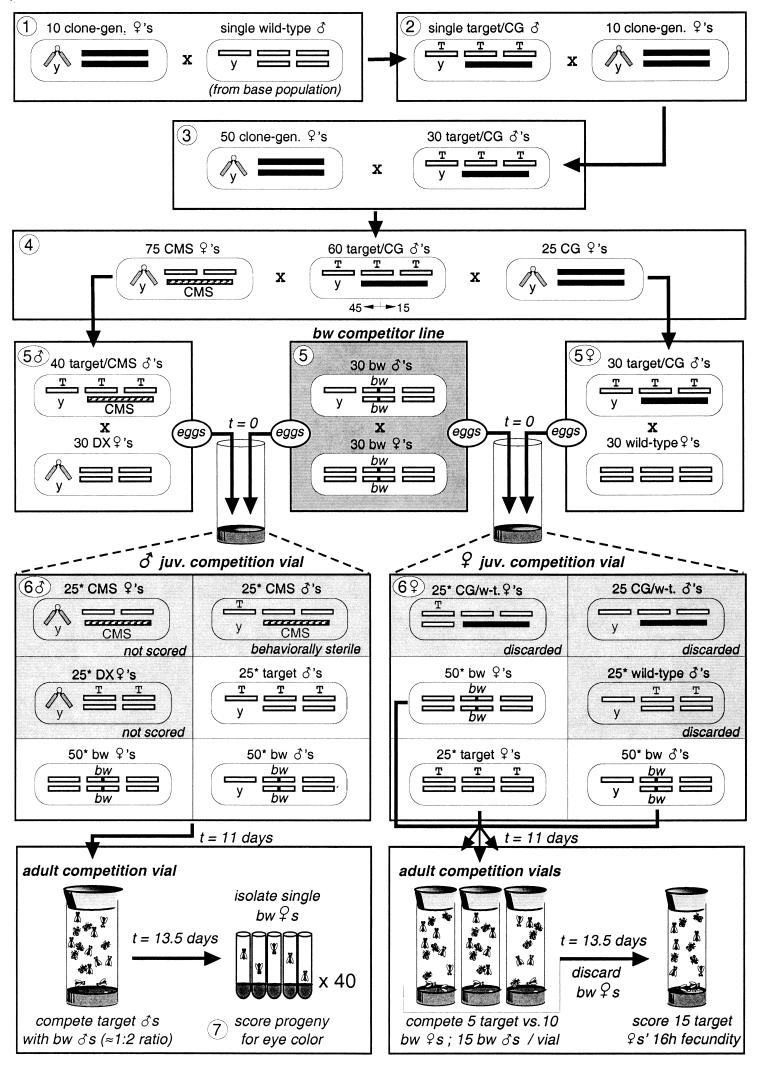Figure 1.
Protocol for sampling and cloning a single haploid genome (denoted T for “target”; steps 1–4), returning it to its original (wild-type) genetic background (step 5), and then measuring its fitness in males and females over a full generation (steps 5–7). Numbered steps indicate generations. Chromosomes I (X), II, and III are depicted as rectangles arranged Left to Right, respectively. Excepting the compound X (depicted as a chevron symbol) and autosomal translocations (shown as elongated rectangles spanning chromosomal positions 2 and 3), all chromosomes were derived from the base population; wild-type chromosomes are shown as open rectangles and marked ones with fill or crosshatching. For clarity, only offspring that were viable and used in a subsequent cross are shown in steps 1–5. By using this protocol, 40 haploid genomes were cloned and measured for juvenile, adult, and total fitness. Steps 4–7 were independently repeated three times for each genome. Asterisks indicate average numbers of viable eggs used to begin the fitness assay. See Materials and Methods for additional details.

